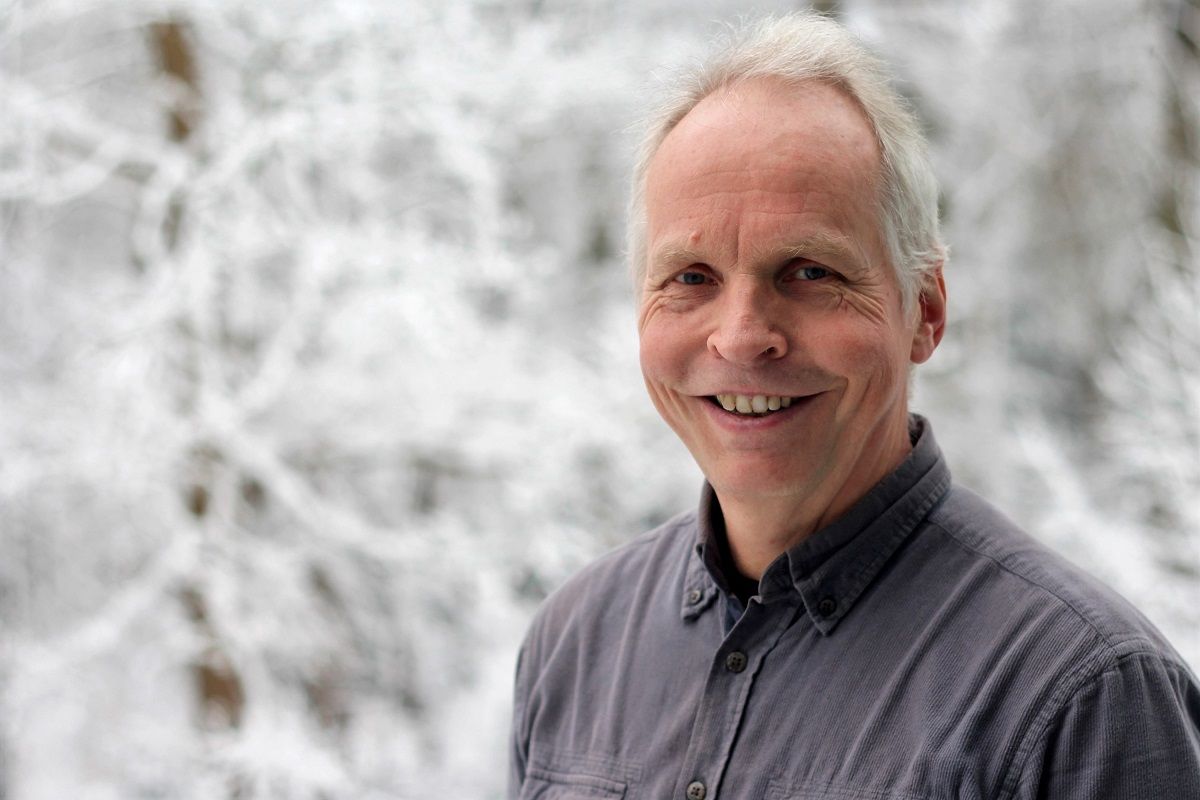
Erik van den Brink

From complaint to strength
I studied medicine in Amsterdam and was trained as a psychiatrist-psychotherapist in England. After my return to the Netherlands in 1995, I led various innovative projects within the mental health services in Groningen, such as an acute day clinic and a team for psychiatric home care, both offering alternatives for hospital admission for people in crisis.
In those days I learned that one should not only ask about complaints, but also about strengths. I was trained in Solution-Focused Therapy and passed on this knowledge to my teams. This felt like a breath of fresh air after the problem-oriented approaches that had been dominating uptil then.
Learning to pause
When I became a psychiatrist at a clinic for outpatients with mood and emotion regulation problems, my professional work and my personal interest in meditation came together. I started offering mindfulness courses to clients and soon also to professionals. They, like me, benefited from learning to pause and becoming aware of their experience as it enfolds moment by moment.
Subsequently, from its founding I worked at the Center for Integrative Psychiatry (CIP) in Groningen - a leading clinic in the Netherlands in combining regular and complementary treatment methods. There, the mindfulness work expanded further. We trained mindfulness teachers internally and felt a need to deepen the applications of mindfulness-based work.
Following your heart
During my time at CIP, I developed with Frits Koster the compassion training Mindfulness-Based Compassionate Living (MBCL), a follow-up training for those who had already followed a foundational course in mindfulness. Thanks to this work, I increasingly understood what it means to follow your heart.
Training activities began to expand, at home and abroad. Our books Mindfulness Based Compassionate Living - for professionals - and A Practical Guide to MBCL – Living with Heart for general public - appeared in several languages and increasingly invitations came to offer MBCL in countries across Europe and beyond. It was wonderful to see how healing and connecting it is when we learn to approach our individual and collective suffering with mindfulness and heartfulness.
The last ten years I worked part-time as a consulting psychiatrist-psychotherapist at Het Behouden Huys in Haren, a psycho-oncological centre for people with cancer and their families. This work often showed how intense the confrontation with illness and dying can be, but also how unsuspected strengths can surface and how the heart can open to what really matters in life.
Self-healing capacity
I look back with gratitude on more than 30 years of working experience in the mental health sector. I have been fortunate to be able to pioneer, develop and innovate. I was always attracted by methods that empower our self-healing capacity and by so-called transdiagnostic approaches, which do not stigmatise but can be applied to all people.
I also experienced the increasing pressure from dehumanising trends in health care due to market forces and administrative controll procedures. It was as if the people behind the diagnoses and the people behind the treatment interventions mattered less. Yet, our self-healing capacity can only thrive when we meet each other mindfully and heartfully.
Keep learning
Along the way many patients, clients and colleagues were my teachers. I trained in innovative approaches such as Solution Focused Therapy, Acceptance & Commitment Therapy, Compassion Focused Therapy and Positive Psychology. As a mindfulness trainer, I was nurtured by many teachers from contemplative traditions and by the founders of MBSR, MBCT, Breathworks, Mindful Self-Compassion, Interpersonal Mindfulness, Mindful Communication, Deep Listening, and Mindfulness-Based Supervision.
Looking back, I see more clearly how my role gradually shifted from therapist to trainer in self-therapy, which culminated in my decision to retire from clinical work in 2021. This gave me more space to pass on my experience through training, education and supervision and… never stop learning.
The covid 19 -pandemic has made us aware, perhaps more than ever, that we need compassion to learn to take better care of ourselves, each other, and the earth as a whole.
The demand for mindfulness and compassion training is increasing, not in the least among healthcare workers. From my own experience I know how difficult it is to maintain the balance between caring for people in need and caring for ourselves. I discovered new possibilities to work online and reach out to people who would otherwise not join in our trainings. Online work also taught me how empowering it is to build international communities around cultivating mindfulness and heartfulness.
Contact and links
[text](link)For contact send email to: erikvandenbrink@mbcl.nl
Some organisations and training institutes I cooperate with...
International: Institute for Mindfulness-Based Approaches, Global Compassion Coalition
UK: The Mindfulness Network
Germany: Institut für Achtsamkeit
Spain: Mindfulness con corazón
France: Euthymia
Polen: Wasza uważność
Turkey: Mindfulness Institute, Istanbul
Brazil: Instituto Plenativamente e Comunicação Plena
Netherlands & Belgium: Kind to Mind,
BFC Compassionate Care & Mindful Medicine, Doctors4Doctors vzw, 30NOW.




